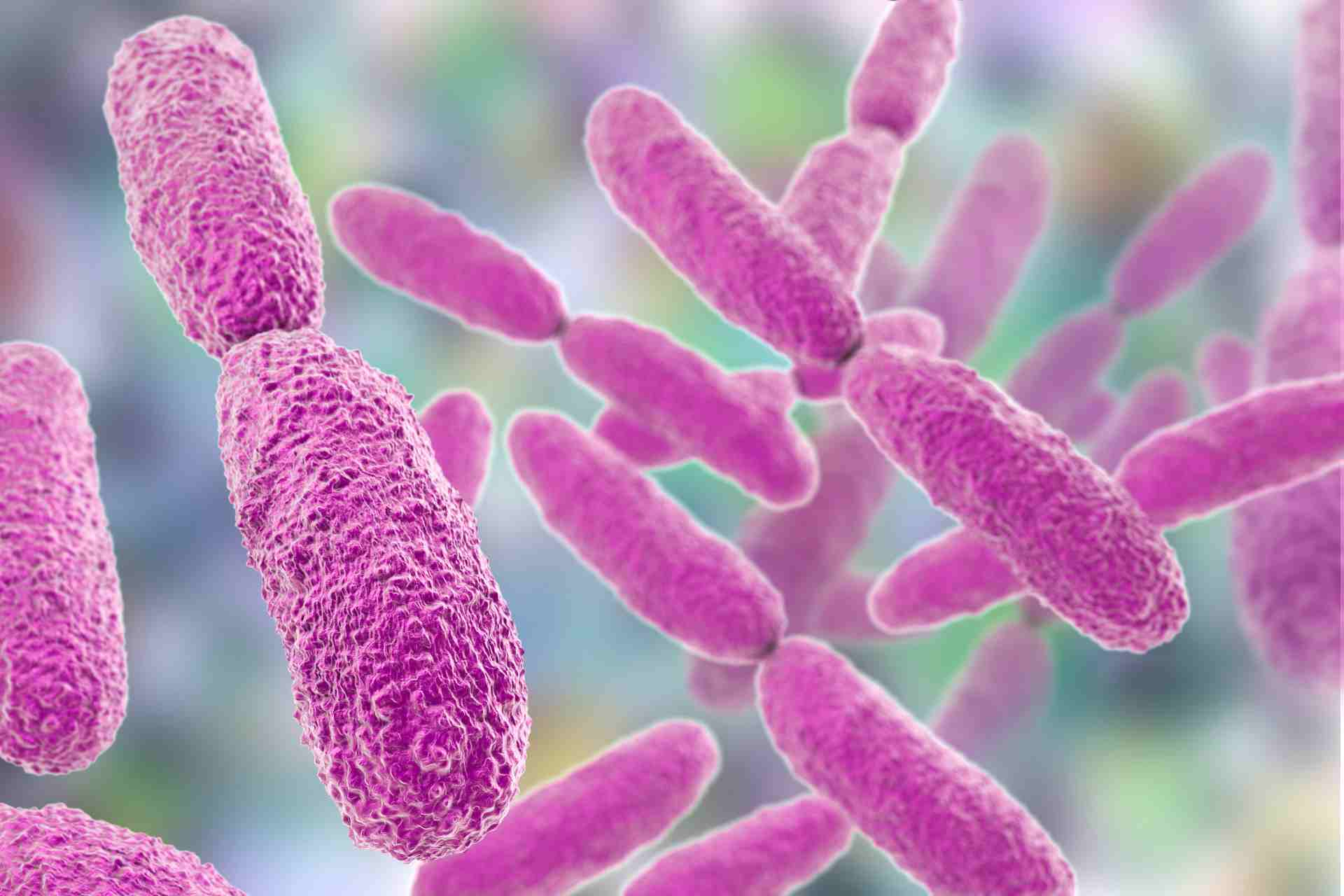What is already known
The overgrowth of specific gut bacteria following antibiotic use can result in high gut concentrations of a DNA-damaging toxin called tilimycin. Rapid renewal of the cells that line the gut would prevent long-lasting damage, but if tilimycin can damage the DNA of stem cells in the gut, the resulting genetic mutations could impact regenerative responses and tissue integrity.
What this research adds
Working in mice, researchers have found that tilimycin reaches the depths of colon crypts, tube-like glands where stem cells renew the lining of the intestine. In mice colonized with tilimycin-producing bacteria, the frequency of stem cell mutations is increased compared to animals colonized with bacteria that are not able to produce tilimycin.
Conclusions
The findings suggest that tilimycin-producing bacteria can cause genetic mutations in the colon and increase a person’s susceptibility to disease.
Stem cells in the gut play a key role in the renewal and regeneration of the intestine. Now, a study in mice shows that a microbial metabolite can engage with intestinal stem cells and damage their DNA.
The findings, published in Cell Reports, suggest that specific gut bacteria can cause genetic mutations in the colon and increase a person’s susceptibility to disease.
Some gut bacteria such as Klebsiella produce a DNA-damaging toxin called tilimycin. Previous research has shown that the overgrowth of these bacteria following antibiotic use can result in high gut concentrations of tilimycin. Although rapid renewal of the cells that line the gut would prevent long-lasting damage, if tilimycin can damage the DNA of stem cells in the gut, the resulting genetic mutations could impact regenerative responses and tissue integrity.
To assess if stem cells in the gut ever encounter tilimycin, Ellen Zechner at the University of Graz and her colleagues colonized mice with tilimycin-producing Klebsiella bacteria.
DNA damage
The researchers analyzed the distribution of tilimycin metabolites in six mice from six to eight days after the animals were infected with a tilimycin-producing strain of Klebsiella oxytoca. The bacteria colonized the whole intestinal tract, but tilimycin was present at low concentrations in the duodenum, jejunum and ileum, which suggests the bacteria are present at low densities in these portions of the intestine.
Tilimycin altered the function of intestinal stem cells, the researchers found. “It is conceivable, therefore, that [tilimycin] release in vivo may cause damage to the colorectal epithelium, similar to ionizing radiation or chemotherapy,” they say.
In mice colonized with tilimycin-producing bacteria, the frequency of stem cell mutations was increased compared to animals colonized with bacteria that were not able to produce tilimycin.
Cancer link
The team also found that tilimycin-producing Klebsiella species are abundant colonizers of the infant gut. Although the maturation of the microbiota during childhood results in lower levels of tilimycin-producing Klebsiella, these bacteria persist in the human gut throughout life, and antibiotics can drive their expansion at all life stages.
“Thus, colonized individuals may be exposed to low doses of genotoxicity over a lifetime, punctuated by acute episodes of environmentally triggered toxin accumulation,” the researchers say.
Although it’s unclear whether the findings are applicable to people, the results suggest that tilimycin-producing Klebsiella species can promote cancer. “This study thus opens a range of research questions involving the etiological role of enteric mutagen [tilimycin] in putative pathologies affecting intestinal development, regeneration, and the earliest stages of tumorigenesis,” the authors say.









